What are the best ways of helping homeless people?
- Published
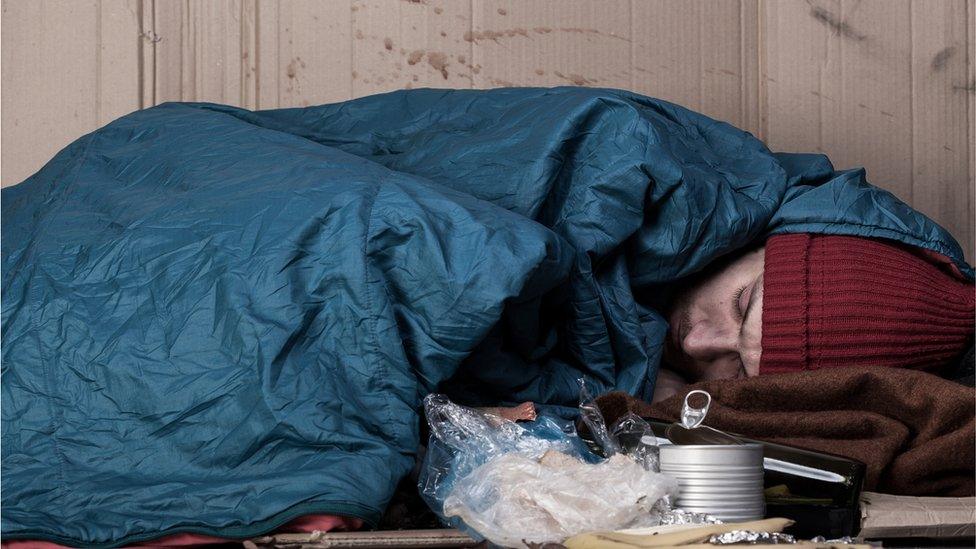
The sleeping bags that line UK towns and cities seem ever more visible as Christmas approaches, prompting many people to reach out during the season of goodwill. But what about the rest of the year?
Homeless charity Crisis, external works to help rough sleepers over the Christmas period but stresses that help is needed all year around, while fellow charity Shelter estimates more than 250,000 people are homeless in England and in need of support.
Here are five practical ways you can make a difference.
1. Alert the professionals
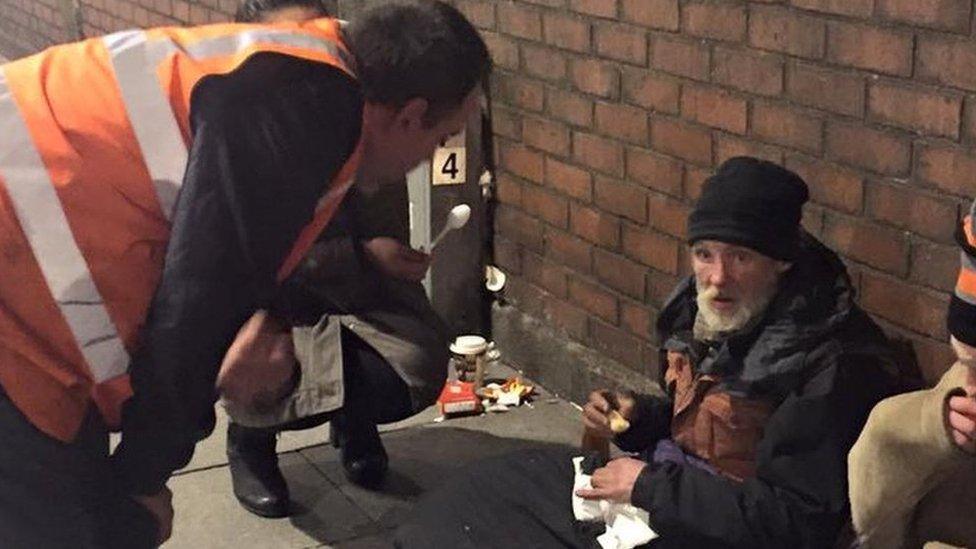
Birmingham Homeless Outreach volunteers provide food, bedding and clothes to those on the streets
Shoppers and commuters pass by homeless people day after day but many may feel they do not know how to help. One of the simplest ways is to tell a professional.
Street Link is a government-funded service which allows people to alert local authorities in England and Wales about rough sleepers in need of support in their area.
"With the public's help, in the last 12 months we have put almost 11,000 people in touch with the support they needed to escape rough sleeping," says director Matt Harrison.
"We hope to have an even greater impact in 2017."
You can pick up the phone or use Street Link's website, external or app to enter details of the location, time and date you saw the person and any other information you have.
The service will contact professionals who will try to find them and help them access things like shelter and food.
2. Give time, not money
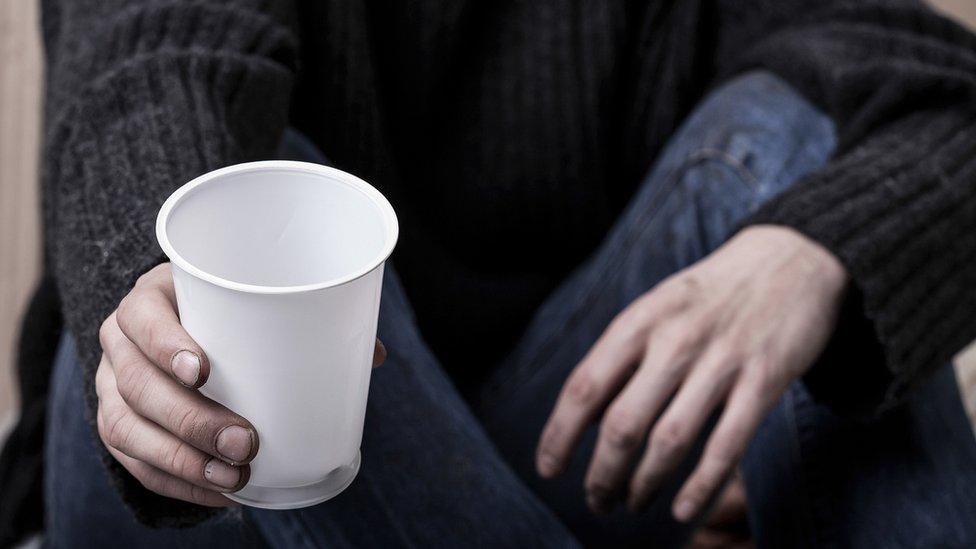
"Offer them food and if they don't take it they don't need it," says former rough sleeper Rik James
When someone on the street asks for money some give instinctively, while others struggle with what it might be spent on. For Rik James, who previously slept rough, money is not the answer.
"If they ask for money it's for one of two things - drugs or alcohol," says Mr James, who runs Birmingham Homeless Outreach.
"Offer them food and if they don't take it they don't need it."
It's his view that if a homeless person spends money on drugs then the person who gave them the cash is party to the substance abuse.
"Just come out with food and hot drinks," he adds. "Give them five minutes of your time, talk to them.
"I go out seven days a week with clothes and bedding. If you give them sleeping bags they just sell them."
3. Or give small things
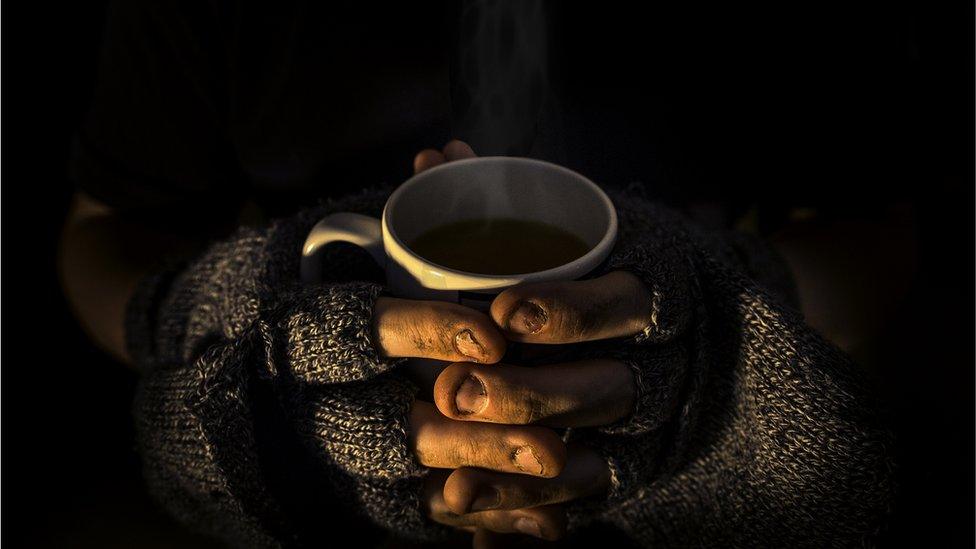
Give a gift - a hat, gloves, or clean dry socks
If you choose not to give money to homeless people there are others things you can give to make a difference to their day.
"A lot of people doing a little is better than a few people doing a lot", is the motto of former armed serviceman Ian Northcott.
He founded Socks&Chocs, external in 2010 to collect warm and dry socks and chocolate for people on the streets of Birmingham.
When Mr Northcott was a soldier he often spent days in the field, tired, cold and wet. The Army insisted he put on a pair of clean, dry socks each day.
Mr Northcott says he did not realise the importance at first, but the simple pleasure of a warm pair of socks made a great deal of difference.
His charity aims to give the same feeling to homeless people struggling in the cold, along with chocolate to give them a boost.
This year the charity has given out 6,274 pairs of socks and 4,713 boxes of chocolate.
Other gift ideas which could make a difference include hand warmers, gloves, hats and books.
4. Remember furry friends
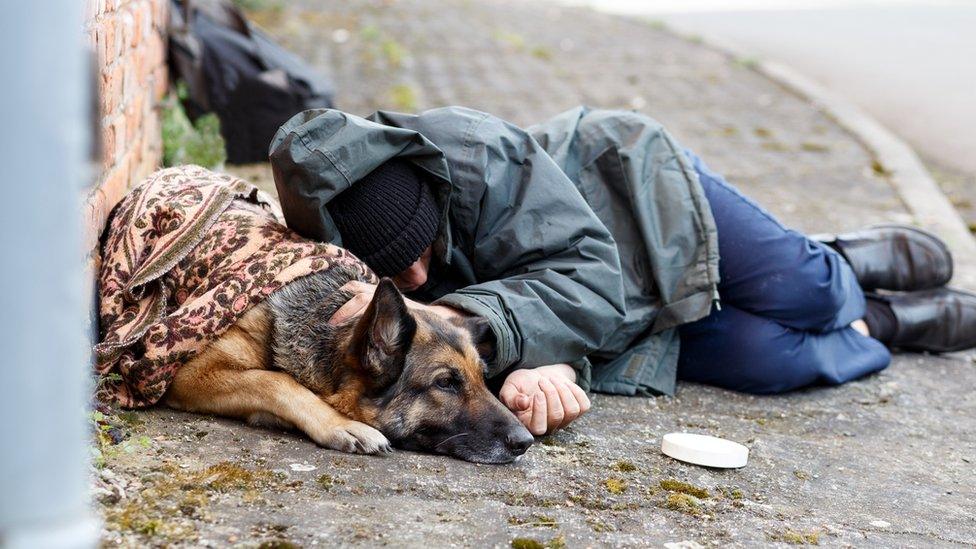
You could drop by some dog food for homeless people with canine companions
A four-legged friend can be some rough sleepers' only companion - and both owner and pet may be grateful of a kind gesture.
"If people want to help [a homeless person] with a dog by buying them some dog food, then we're sure it would always be appreciated," says Clare Kivlehan, head of outreach projects at The Dog's Trust.
She says the public could also put rough sleepers in touch with the charity's Hope Project,, external which provides free and subsidised veterinary treatment to dogs whose owners are homeless or in housing crisis.
The project also works with hostels and housing providers to encourage them to accept clients with dogs.
Ms Kivlehan adds: "Each year [the Hope Project] funds around 1,800 veterinary treatments to help dogs remain with their devoted owners... There are now over 150 dog friendly hostels nationwide."
5. Remember the 'hidden homeless'
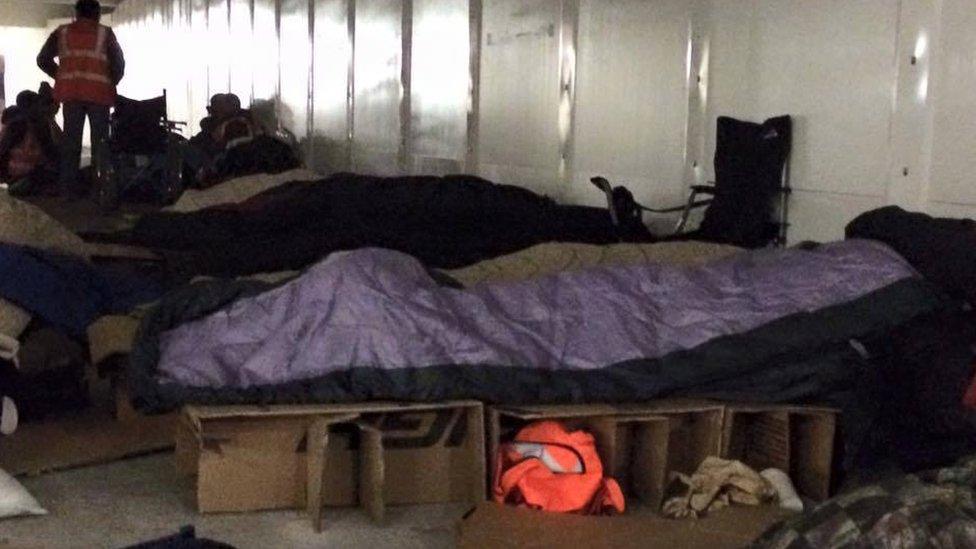
The old Birmingham Central Library used to provide shelter for many homeless people in the city
When rough sleepers line the streets, their plight is painfully visible. But Roger Harding, campaign director at homeless charity Shelter, external, says there are many, many more people whose struggles are hidden.
"This Christmas, 120,000 children in Britain will be homeless," says Mr Harding. "Hidden away in hostels; sharing kitchens and bathrooms with strangers. Sharing a bedroom with the rest of their family."
He says people could encourage those at risk of losing their homes to call their helpline, which is open 365 days a year for advice and support.
The government's Homelessness Reduction Bill, external introduced in October places a duty on local authorities to help eligible people secure somewhere to live 56 days before they are threatened with homelessness.
Councils must also provide those who do find themselves homeless with support for another 56 days to help to secure accommodation.
- Published18 November 2016

- Published6 December 2016

- Published1 December 2016
